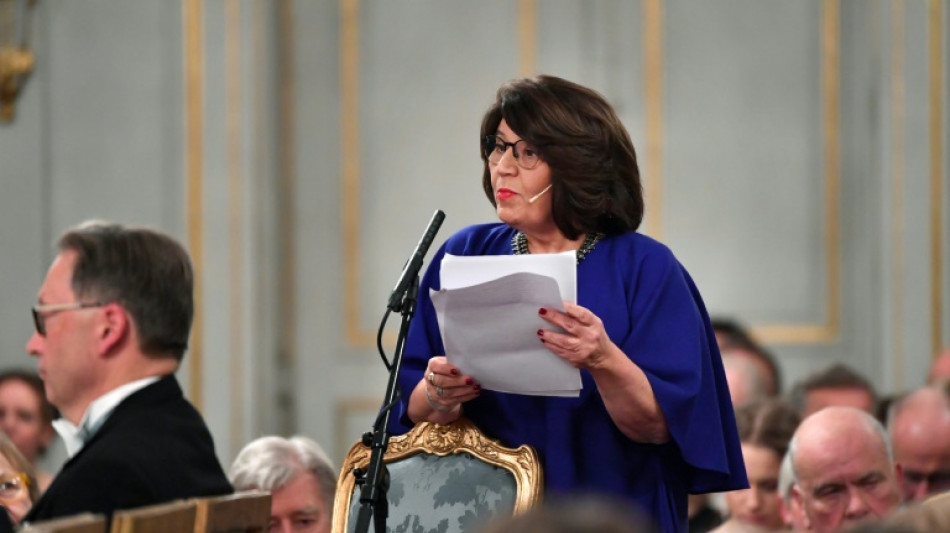
-
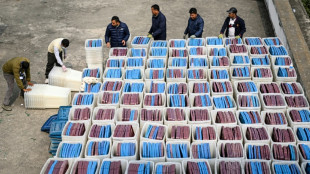 Nepal launches campaigns for first post-uprising polls
Nepal launches campaigns for first post-uprising polls
-
What to know as South Korea ex-president Yoon faces insurrection verdict

-
 'Train Dreams,' 'The Secret Agent' nab Spirit wins to boost Oscars campaigns
'Train Dreams,' 'The Secret Agent' nab Spirit wins to boost Oscars campaigns
-
Rubio visits Trump's 'friend' Orban ahead of Hungary polls

-
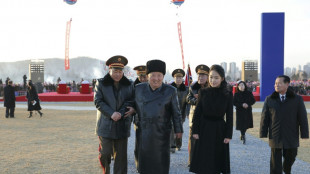 Kim unveils housing block for North Korean troops killed aiding Russia: KCNA
Kim unveils housing block for North Korean troops killed aiding Russia: KCNA
-
Accused Bondi killer Naveed Akram appears in court by video link
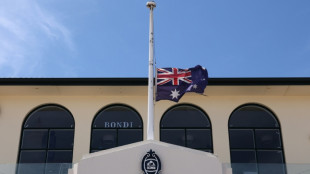
-
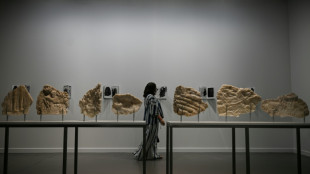 Art and the deal: market slump pushes galleries to the Gulf
Art and the deal: market slump pushes galleries to the Gulf
-
Job threats, rogue bots: five hot issues in AI
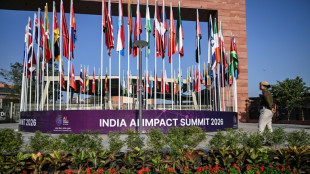
-
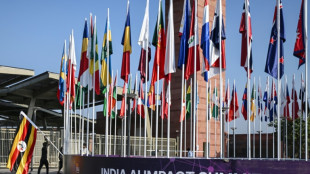 India hosts AI summit as safety concerns grow
India hosts AI summit as safety concerns grow
-
'Make America Healthy' movement takes on Big Ag, in break with Republicans
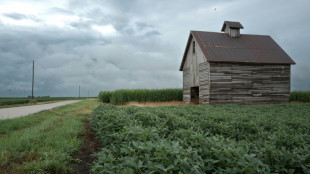
-
 Tech is thriving in New York. So are the rents
Tech is thriving in New York. So are the rents
-
Young USA Stars beat Stripes in NBA All-Star tourney final

-
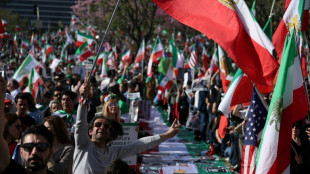 New anti-government chants in Tehran after giant rallies abroad: reports
New anti-government chants in Tehran after giant rallies abroad: reports
-
'The Secret Agent' nabs Spirit Awards win in boost to Oscars campaign
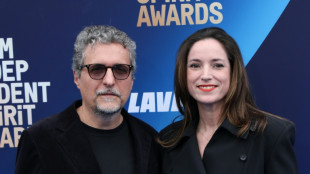
-
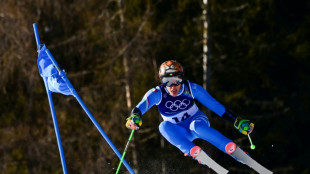 Brignone wins second Milan-Cortina gold as Klaebo claims record ninth Olympic crown
Brignone wins second Milan-Cortina gold as Klaebo claims record ninth Olympic crown
-
Morikawa wins at Pebble Beach despite Scheffler heroics

-
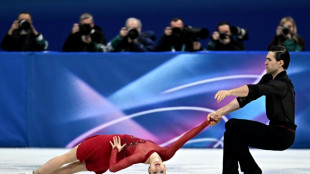 Germany's Hase and Volodin tango to Olympic pairs figure skating lead
Germany's Hase and Volodin tango to Olympic pairs figure skating lead
-
Rayo thrash Atletico who 'deserved to lose' as Betis cut gap

-
 Napoli salvage point after Malen twice puts Roma ahead
Napoli salvage point after Malen twice puts Roma ahead
-
Lyon down Nice to boost Ligue 1 title bid with 13th straight win

-
 LeBron still unclear on NBA future: 'I have no idea'
LeBron still unclear on NBA future: 'I have no idea'
-
Shelton battles back from brink to beat Fritz, take Dallas crown

-
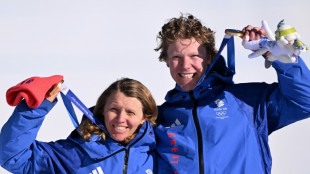 Great Britain celebrate best-ever Winter Olympics
Great Britain celebrate best-ever Winter Olympics
-
Brignone wins second Milan-Cortina gold as Klaebo claims record ninth
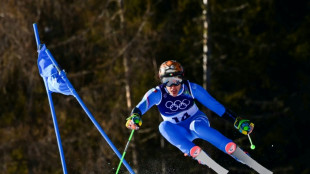
-
 Arteta concerned over Arsenal's mounting injury list
Arteta concerned over Arsenal's mounting injury list
-
In fuel-starved Cuba, the e-tricycle is king

-
 Shaidorov still spinning after outshining Malinin for Olympic gold
Shaidorov still spinning after outshining Malinin for Olympic gold
-
Late Gruda goal grabs Leipzig draw versus Wolfsburg

-
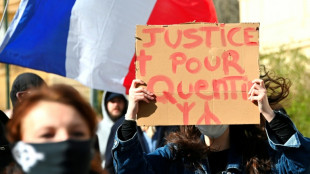 'Ultra-left' blamed for youth's killing that shocked France
'Ultra-left' blamed for youth's killing that shocked France
-
Canada wrap up perfect Olympic ice hockey preliminary campaign

-
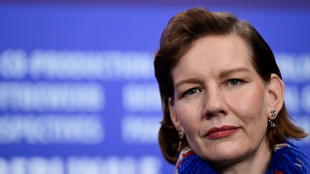 Historical queer film 'Rose' shown at Berlin with call to action
Historical queer film 'Rose' shown at Berlin with call to action
-
Wales' Tandy tips hat to France after Six Nations hammering

-
 Quadruple chasing Arsenal rout Wigan to reach FA Cup fifth round
Quadruple chasing Arsenal rout Wigan to reach FA Cup fifth round
-
2026 S-Class starry facelift

-
 What they said as India beat Pakistan at T20 World Cup - reaction
What they said as India beat Pakistan at T20 World Cup - reaction
-
Away-day blues: England count cost of Scotland Six Nations defeat

-
 'Wuthering Heights' debuts atop North America box office
'Wuthering Heights' debuts atop North America box office
-
Rayo thrash Atletico who 'deserved to lose'

-
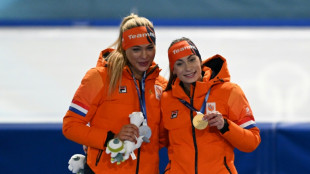 Kok beats Leerdam in Olympic rematch of Dutch speed skaters
Kok beats Leerdam in Olympic rematch of Dutch speed skaters
-
India rout bitter rivals Pakistan by 61 runs at T20 World Cup

-
 France run rampant to thrash sorry Wales 54-12 in Six Nations
France run rampant to thrash sorry Wales 54-12 in Six Nations
-
Rio to kick off Carnival parade with ode to Lula in election year

-
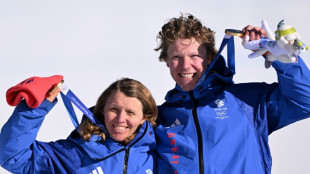 Britain celebrate first-ever Olympic gold on snow after snowboard win
Britain celebrate first-ever Olympic gold on snow after snowboard win
-
Third time lucky as De Minaur finally wins in Rotterdam

-
 Leeds survive Birmingham scare to reach FA Cup fifth round
Leeds survive Birmingham scare to reach FA Cup fifth round
-
Klaebo wins record ninth Winter Olympics gold medal

-
 Fan frenzy as India–Pakistan clash in T20 World Cup
Fan frenzy as India–Pakistan clash in T20 World Cup
-
French 'Free Jazz' pioneer Portal dies aged 90
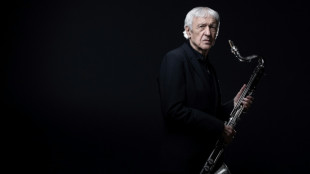
-
 China's freeski star Gu says Olympics scheduling 'unfair'
China's freeski star Gu says Olympics scheduling 'unfair'
-
Kishan hits quickfire 77 as India make 175-7 in Pakistan showdown


Jila Mossaed, from refugee poet to Swedish Academy
Jila Mossaed fled Iran for Sweden in 1986, a 38-year-old poet who spoke no Swedish. Three decades later, she became the first foreigner inducted into Sweden's highest language authority, the Swedish Academy, which awards the Nobel Prize in Literature.
Now she writes in Farsi and Swedish, but Mossaed struggled for years to learn Swedish and still stumbles over pronunciation, she told AFP in the halls of the Academy, founded in 1786 by King Gustav III to promote the Swedish language and literature.
The 76-year-old, whose work explores life, death, politics, love, exile and nature, never expected to join the Academy in 2018.
The 18 Academy members are appointed for life.
"It's such an unbelievable honour. I'm so proud of it," she said, her dark eyes beaming.
Mossaed is tight-lipped on the Nobel prize to be announced Thursday, but says she sees her Academy role in general as broadening horizons.
"I carry with me an ancient, rich language spoken by 300 million people."
"To open new windows to unknown literature and introduce it is an interesting and important contribution," she said.
In 1986, Mossaed fled Iran with her two young children after a book of her poetry received "very threatening and humiliating" criticism from the Islamic Republic's authorities.
"Soldiers came to my house with weapons and took many things," she recalled.
She was summoned to a censorship office. "When I left I thought, 'This isn't my country anymore'."
"I had no plan. I didn't know what it meant to be a refugee or which country I would end up in."
A smuggler told her Sweden and Denmark were easiest to get to.
She knew of Ingmar Bergman, August Strindberg and Pippi Longstocking, so Sweden it was.
- 'The North is my grave' -
For the first two years, she spoke only English and bought no curtains, thinking she would not stay long.
But eventually, "I realised I had to learn the language. It was hard," she said, speaking fluent but accented Swedish.
When she began writing in Swedish, "it was like there was a corpse beside me, and on it, it said 'Farsi'."
"It started gasping for air. 'I'm going to die,' it said."
"I said, 'No, don't die. I'm going to write in Farsi too, I won't forget you."
After 10 years she had written 13 poems in Swedish.
"I realised I had left my cradle and the North was my grave."
Mossaed has published 10 poetry collections in Swedish since her first book, "Månen och den eviga kon" (The Moon and the Eternal Cow), in 1997.
She insists she is still "not very good at Swedish" -- she jokes about her pronunciation and takes her time on grammar. That is unexpected for a member of an academy revered as bearers of high culture and defenders of the language.
But rather than get stuck on details, "I wanted to approach the language's soul," which she describes as "tranquility", "silence" and "nature".
"I appreciate so much that people here don't get worked up over things like religion."
- Openly critical -
Her writing changed in Sweden.
In Iran, "we're used to being put under pressure by mullahs, religion and kings, so we've always found a way to write around that."
"I didn't want to do that in Sweden, I want to be straightforward. I love the truth."
Born into a non-religious family, Mossaed is now openly critical of the Iranian government in her poetry and occasional commentaries.
"I'm glad that people now understand what it means when Islam takes power," she said, labelling the current government "brutal".
"They kill people, execute people, humiliate and whip women."
She believes the government's power is coming to an end, as Iranians "now dare to criticise and ask questions".
But "it will take time and it will be bloody. The people will pay a high price."
While her Swedish poems are "braver, politically", the language is "simpler".
When she writes in Farsi, "it's like diving into an ocean of words".
"When I write in Swedish, it's like I'm standing beside a pool."
"I'm happy that the simplicity gave me more freedom. And the critics say it's good!" she said with a laugh.
Her poems come to her suddenly, "like brain attacks", but it has been months since a poem came to her in Farsi, and she dreams and writes grocery lists in Swedish these days.
Mossaed lived in Sweden's western province of Varmland for many years. It was hard to get to know people, but she learned to love the forest.
Walking in the woods, she would reach out to touch branches.
"I said 'Taste my hand, it comes from the desert'."
"Sometimes I think the forest accepted me faster than people did."
A.Malone--AMWN